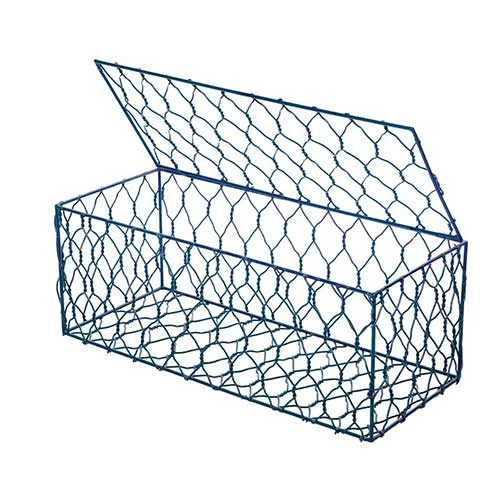-
 Phone:
Phone: -
 Email:
Email:

clothes hanger wire gauge
Understanding Clothes Hanger Wire Gauge A Comprehensive Guide
When it comes to organizing a closet or hanging up garments, clothes hangers are often taken for granted. However, the material and gauge of the wire used in these hangers play a crucial role in their functionality, durability, and performance. In this article, we’ll explore the concept of wire gauge in relation to clothes hangers, its significance, and what you should consider when selecting the right hangers for your needs.
What Is Wire Gauge?
The term wire gauge refers to the diameter or thickness of the wire used in various applications, including clothes hangers. The gauge of a wire is measured using different systems, with the American Wire Gauge (AWG) being the most common in the United States. In this system, a lower gauge number indicates a thicker wire. For example, a wire gauge of 12 is thicker than a wire gauge of 16.
The gauge used in clothes hangers is important because it affects strength, flexibility, and overall performance. Thicker wires can typically support heavier garments without bending or breaking, while thinner wires are more lightweight and may be better suited for delicate items.
Common Wire Gauges Used in Clothes Hangers
Clothes hangers are typically made from various materials, such as plastic, wood, and metal. Metal hangers, particularly those made of chrome or stainless steel, use wire gauges that typically range from 12 to 18.
- 12 to 14 Gauge Hangers made from lower gauge numbers (12 to 14) are extremely sturdy and can hold heavier items like winter coats or denim jackets. They are ideal for those who need to store bulkier clothing without worrying about the risk of bending.
- 15 to 16 Gauge This range is often found in standard hangers that are versatile enough for everyday use. They can comfortably accommodate most clothing types, including shirts, blouses, and skirts.
clothes hanger wire gauge

- 17 to 18 Gauge These thinner hangers are more suited for lightweight garments, such as t-shirts and dresses. While they are not as durable as their thicker counterparts, they can be beneficial for saving space and reducing bulk in the closet.
Factors to Consider When Choosing Clothes Hangers
1. Type of Clothing Consider the garments you plan to hang. For instance, if you have many heavy winter clothes, opt for thicker wire hangers. Conversely, for lighter items, thinner hangers may suffice.
2. Space Availability If closet space is limited, you might prefer thinner hangers that allow for a more compact storage solution.
3. Durability and Style Evaluate the appearance and durability of the hanger. Metal wire hangers provide a sleek look but may not be as decorative as wooden or plastic options.
4. Budget Higher gauge hangers with superior strength and durability often come at a premium. It’s essential to balance quality and cost based on your needs.
5. Specialty Hangers Some clothes require specialized hangers, such as padded hangers for delicate fabrics or clips for skirts and trousers. These often come in various wire gauges to provide the necessary support.
Conclusion
In conclusion, understanding wire gauge is vital when selecting clothes hangers. The gauge influences the durability, strength, and suitability of hangers for different clothing types. By considering the weight of your garments, available closet space, and the overall aesthetic you desire, you can choose hangers that will not only protect your clothes but also enhance your wardrobe's organization. Remember, a well-organized closet begins with the right hangers, so take the time to invest in quality options that meet your needs.
-
Wire Mesh for Every Need: A Practical SolutionNewsJul.25,2025
-
Steel Fences: Durable, Secure, and Stylish OptionsNewsJul.25,2025
-
Roll Top Fencing: A Smart Solution for Safety and SecurityNewsJul.25,2025
-
Cattle Farm Fencing Solutions for Maximum SecurityNewsJul.25,2025
-
Affordable Iron Binding Wire SolutionsNewsJul.25,2025
-
Affordable Galvanized Wire SolutionsNewsJul.25,2025
-
Wire Hanger Recycling IdeasNewsJul.25,2025








